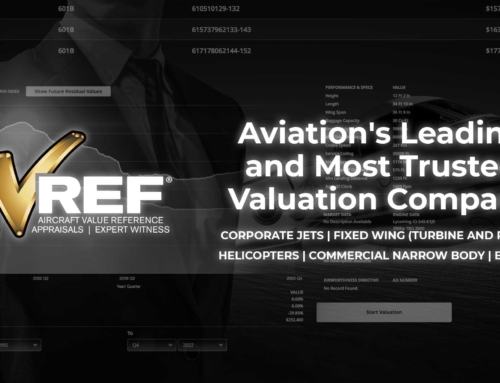In 2018, the number of air carriers and general aviation aircraft in the US were just under 212,900.
Agents who offer aircraft appraisals are governed and called to the highest standards of professional ethics by the Uniform Standards of Professional Appraisal Practice (USPAP). The standards focus on ethical and performance expectations. They also provide strict guidelines, rules, regulations, and requirements for all experienced aircraft appraisers to ensure they offer USPAP endorsed aircraft appraisal.
Aircraft appraisal companies offer training, testing, and certification. Besides, they provide clients with vital information that helps them make informed lending or purchasing decisions.
Here’s a list of seven key things to keep in mind for aircraft appraisal in relation to the USPAP standards.
1. Professional Practice and Conduct
Aircraft appraiser compliance with the code of ethics is obliged by the law. The ASA has established strict standards for professional practice which all members must adhere to.
- As the buyer — The appraisal offers an impartial professional opinion on the value of the aircraft you intend to purchase.
- As the seller — The aircraft appraisal gives you the confidence of getting current fair market value of the aircraft.
- As the banker — The appraisal indicates the value and condition of the aircraft which in case of a loan acts as collateral.
- As the insurer — To verify damage claims resulting from accidents, hanger rashes or in case USPAP standards of disasters.
2. Management
USPAP requires full disclosure of fees, commissions, and other payments connected with the procurement of an assignment. This details should appear in the certification or any other transmittal document and conclusions indicated. Failure to disclose is considered unethical.
3. Honesty, Impartiality, and Professional Competence
In communicating on an appraisal or on a consulting assignment completed under USPAP, as the appraiser, you must perform ethically and competently.
You mustn’t engage in criminal conduct. You should be objective, impartial and independent from external influence or personal interest.
4. Confidentiality by USPAP standards
When making an appraisal, you must be aware of all confidentiality and privacy laws applicable to your assignment. You work is to protect the confidential nature of the appraiser-client relationship.
5. Record keeping
Keep a record work file for each appraisal conducted, appraisal review or consulting assignment.
In the work file, include client identification by name or business. Have both soft and hard copies of the reports including summaries, transcripts, and appraisers signed and dated certification.
6. Time to Complete an Appraisal Report
There must be sufficient time to do an exhaustive job. You should spend minimal time in the field inspecting the aircraft rather you should concentrate more time on researching data.
7. The Appraisal Cost
This will be dependent on the size of the aircraft, time used in collecting, and researching data for a conclusive appraisal report.
Get Your Appraisal Report
A comprehensive aircraft appraisal should be conducted by a credited agent who adheres to the USPAP standards of ethics. It should contain an analysis of the market as well as the fleet status report. The aircraft valuation, current market value, and liquidation value should be inclusive.
Check out this page for more information on how you can get your appraisal report.




